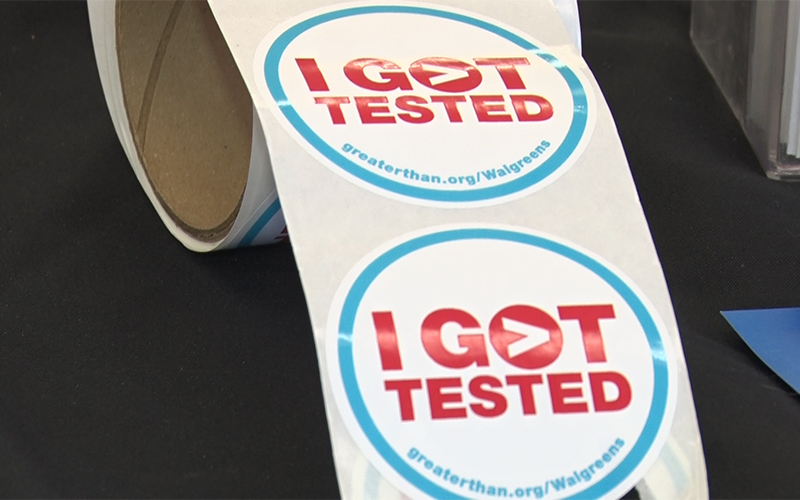
Maricopa County is one of 57 jurisdictions selected to participate in the Trump administration’s “Ready, Set, PrEP” program that will make the HIV preventive drug, PrEP, available free to HIV-negative people without a prescription plan. (Photo by Jennifer Magana/Cronkite News)
WASHINGTON – Maricopa County is one of dozens of state and local governments tapped Tuesday to be part of a federal initiative to combat HIV infections, one step in an ambitious plan to end HIV in the U.S. by 2030.
The Department of Health and Human Services’ “Ready, Set, PrEP” initiative will provide free access to PrEP, an HIV prevention drug protocol, in 57 communities for an estimated 200,000 HIV-negative Americans who don’t have a health plan with prescription coverage.
Advocates in Arizona welcomed the announcement and the larger goal of ending HIV in America by 2030.
“I really do believe … that we’re on the verge of seeing a genuine end to this epidemic,” said Glen Spencer, executive director of Aunt Rita’s Foundation.
Spencer said Maricopa County boasts an unusually high number of new cases of HIV infections each year. The most recent Arizona HIV Surveillance report by the Arizona Department of Health Services showed 526 new cases were reported in the county in 2017 alone.
Ready, Set, PrEP is part of a larger effort by the Trump administration, which set a goal in February to end new cases of HIV in America by 2030.
As he unveiled the program Tuesday, HHS Secretary Alex Azar called it “a historic expansion of access to HIV prevention medication and a major step forward in President (Donald) Trump’s plan to end the HIV epidemic in America.”
“Thousands of Americans who are at risk for HIV will now be able to protect themselves and their communities,” Azar said in a conference call announcing the program.
Azar said HHS has asked Congress for $291 million for efforts to stem HIV. Even though PrEP manufacturer Gilead has donated the drug through 2030, federal funds will be needed to cover remaining costs of $200 per bottle until March 30, when sponsorships with Walgreens, CVS and Rite-Aid begin.
At no point will patients in the program have to pay for the drug.
To qualify for the program, individuals will have to test HIV-negative, not have prescription drug coverage and have a prescription from their doctor for PrEP. Those eligible can apply for Ready, Set, PrEP online, through a toll-free number or at their local health care provider.
The Centers for Disease Control and Prevention released new HIV data Tuesday to coincide with Azar’s announcement. The report shows that 1.2 million Americans lived with HIV infection on 2017, but only a handful of them received PrEP.
“Ending the HIV epidemic would be one of the greatest public health triumphs in our nation’s history,” said Dr. Eugene McCray, director of the CDC’s HIV/AIDS prevention division. “That achievement would also be a testament to the decades of HIV advocacy, community involvement and scientific and public health efforts that have driven HIV testing, treatment and prevention in our country.”
Aunt Rita’s Foundation is one of the local advocacy groups slated to assist DHS and the Maricopa County Department of Public Health to develop a plan for free PrEP that will fit the needs of the community, where Hispanic men lead in new diagnoses. Spencer said Maricopa County is eligible for up to $4 million in funding, but the amount it receives will depend on its grant application.
Spencer said expanding testing and reducing the stigma surrounding HIV infections will be key to achieving the administration’s lofty 2030 goal.
“There are people who test HIV-positive who just can’t bring themselves to walk into the clinic to get treated, and that’s exceptionally unfortunate,” Spencer said. “So we also have to do better in terms of destigmatizing HIV, both with patients and with the medical community.”
He noted that many Americans formed an opinion on HIV and AIDS in the 1980s and 1990s and their impressions have not changed. Many are unaware that PrEP can suppress the disease and prevent transmission, he said.
“I think it really helps us move the needle toward ending the epidemic,” said Spencer.